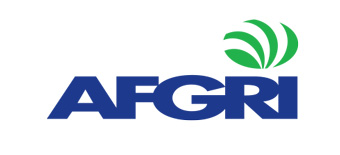Enhancement to AFGRI’s online transaction platform frees up time for farmers
AFGRI’s innovative e-Accounts online transaction platform has evolved into a powerful, dynamic digital channel that will soon span services and products across the AFGRI suite with further enhancements aimed to free up time for farmers
UNIGRO, the financial services division of AFGRI, became the first South African agricultural lending provider (excluding the tier one banks) to provide internet transaction services to its customers with the launch of its online offering in 2014.
Named e-Accounts, the transactional online system has evolved into a powerful, dynamic digital channel that will soon span offerings across AFGRI.
“e-Accounts evolved from a relatively simple transaction portal into a sophisticated digital channel that is changing the way AFGRI’s customers are doing business,” says Tinus Prinsloo, Chief Executive Officer, AFGRI Agri Services. “The platform lets farmers manage their entire business, finance and planning on one user-friendly platform that’s secure, instant, convenient and accessible from a variety of devices. In addition, farmers get end-to-end transaction capability at lower rates than those charged by banks.”
Four years after the portal was developed by specialist software provider Synthesis for UNIGRO, e-Accounts have been leveraged by most AFGRI divisions and expanded into a powerful, dynamic platform. Additional enhancements will further revolutionise the way farmers manage their AFGRI accounts.
Johann Barnard, Chief Operations Officer, UNIGRO Financial Services and e-Accounts project owner, says the platform is a resounding success. “AFGRI e-Accounts enables farmers to manage their entire operation online – from loans, forex and payments to grain trading and equipment purchases. It offers a secure, easy-to-use transaction and management platform for customers. Instead of having to call or email AFGRI, customers can now access their accounts from multiple devices, simply and intuitively, 24 hours a day.”
Following the initial success of the platform, AFGRI saw the opportunity of adding further agri-related functions that would enable farmers to administer and manage their entire farming operations, says Barnard. Several additional features, including payment scheduling, viewing and authorisation of foreign exchange transactions as well as payroll capabilities, were added for GroCapital, another AFGRI financial division.
As features to the platform are added on demand, the popular grain management tool was added in June 2016. Using e-Accounts, farmers can view the amount of grain they have in stock at the silo, as well as the amount they still need to deliver on their contracts. They can keep an eye on live grain prices, estimating how they will affect them, and trade their grain with brokers, who are able to immediately transfer money from their UNIGR0 facilities to the farmers, says Prinsloo.
With this feature, clients can see everything from tonnage, date of delivery and Rand per ton, through to the processing of loans and payment. They have insight into the entire value chain, via a graphical dashboard, adds Barnard. “e-Accounts also enables farmers to tender for offcuts (called chaff and siftings) from the grain processing which can be used for cattle feed.”
AFGRI’s insurance division will be next to benefit, followed by retail. And later this year, farmers will have access to e-Credit, where they can apply for new lending facilities through e-Accounts.
“Within five years, we want to create a ‘bartering’ system so that, for example, when our client delivers his grain he can drive away in his new tractor!” says Barnard.
For AFGRI, e-Accounts delivers a major competitive advantage. AFGRI is benefitting from greater customer satisfaction, increased revenue as a result of up-selling and cross-selling, better efficiency, increased employee satisfaction and reduced risk. The platform has been a major differentiator for AFGRI, which is now viewed as a leading technology innovator.
AFGRI e-Accounts now has approximately 1000 active users, with more than 30 000 logins since the first project went live. The largest single payment so far was more than R60 million. “We’re seeing a dramatic trend upwards,” says Barnard. “Within the first 12 months, R1,2 billion in payments went through the system. During the second year, this value has tripled, shooting up to more than R4 billion.”
“We see e-Accounts as one of most important sticky factors for the agricultural sector going forward,” Barnard concludes. “We’re not aware of any other company – in South African or the rest of the world – that enables its customers to have this wealth of information at their fingertips and which enables them to run their entire farming operations.”

